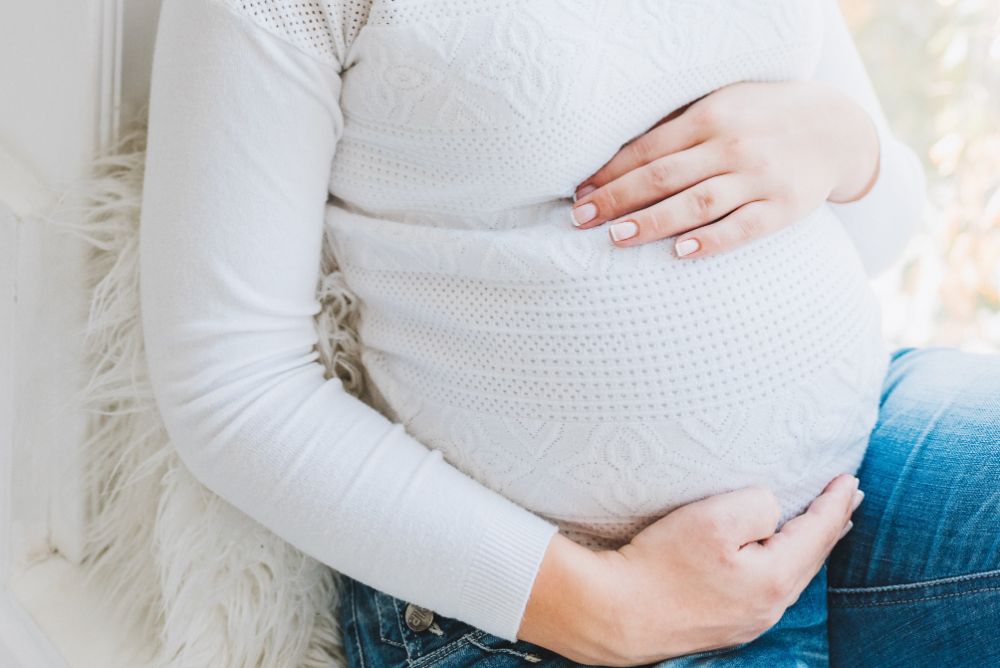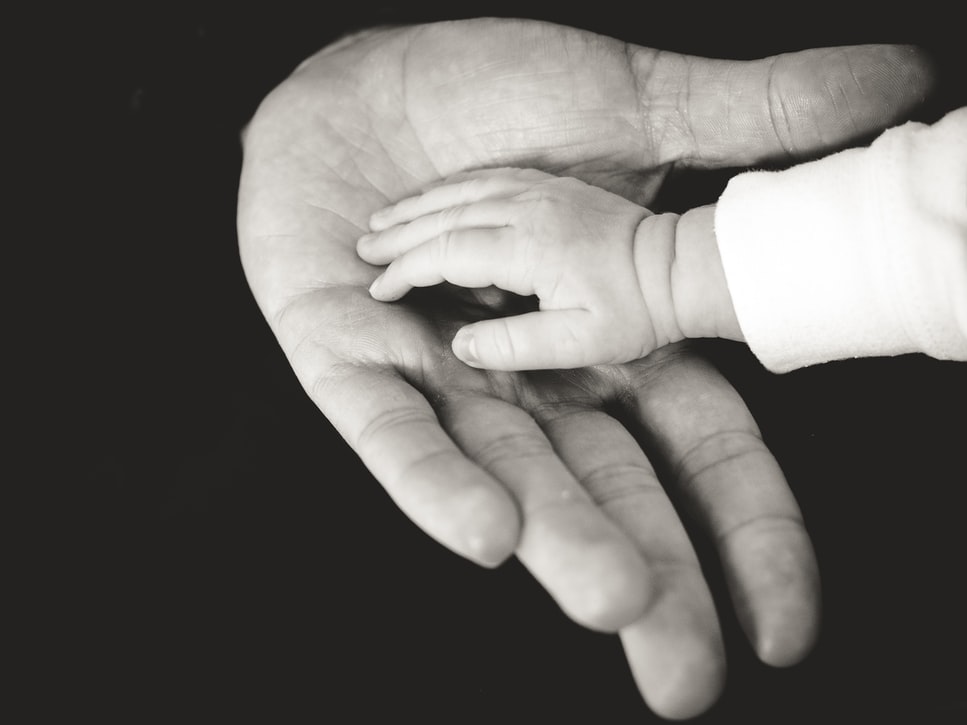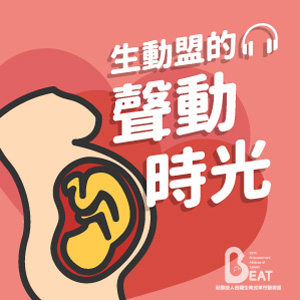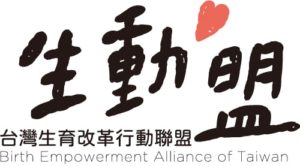OUR ADVOCACY

Midwives in Hospitals Needed
Birth Empowerment Alliance of Taiwan (BEAT) firmly believes that midwifery is highly undervalued in Taiwan.
From one-on-one companionship during labor that minimizes medical intervention in normal spontaneous delivery (NSD) to individualized care for new mothers and newborns’ physical and psychological conditions to breastfeeding consultation, trained midwives can provide both pre- and post-natal guidance to new moms-to-be. Yet this support is only accessible to a handful of expectant women as few medical institutions in Taiwan are willing to keep midwives on staff, which sharply minimizes the chances for expectant families to receive care from midwives.
BEAT thus invites you to join us in demanding policy-making that aims to staff medical institutions with midwives and ensure the recruitment of at least one midwife in each delivery ward. With a team of (at least) four midwives in each hospital, comprehensive maternity care can thus be secured, enabling true holistic and friendly birthing.
Maternity Leave Prolonged to 14 Weeks
Delivery isn’t the end of childbirth. Based on the Maternal Care Convention of the International Labor Organization (ILO), a minimum of 14-week maternity leave for people who give birth is strongly advised to help new moms to cope with the possible fatigue and frustration from handling the newborns. Statistics show that among ILO’s 185 member states, 53% (98 member states) provide at least 14 weeks of maternity leave with pay. New mothers who are forced back to work due to shorter maternity leave times are likely to develop postpartum depression or to leave their jobs due to the overwhelming burdens from work and family.

Postpartum disorder affects not just the mother, but the whole family. Evidence shows that such disorders may lead to emotional and behavioral problems in newborns due to a lack of interactions with caregivers. Meanwhile, it also creates intimacy issues between the mother and her partner. A U.S. study suggests that those who take maternity leave—regardless of the length, which may range from six weeks to six months— have a much lower rate of developing depression than those who don’t. The study is significant in the sense that 34.5% of Taiwanese new mothers suffer from postpartum depression. To alleviate the situation, BEAT calls for the extension of the statutory maternity leave from eight weeks to fourteen weeks.

Five Days of Paid Leave for Partners to Participate in Pregnancy Checkups
Partners of expectant women are no longer absent from the delivery process due to our much more comprehensive understanding of birthing. However, they remain excluded from the pregnancy process. Unlike expectant women in Taiwan who have a statutory five days of leave for 10 routine pregnancy checkups, partners of the moms-to-be don’t have any paid leave to join in these hospital visits, which leads to two compromising scenarios—expectant woman have to either arrange evening- or weekend- checkups or have to make the hospital visits alone. The lack of paid leave for partners to go to pregnancy checkups is an indication of how the health care and labor systems in Taiwan discourage the participation and engagement of the partners or spouses of pregnant women, leading to a low spousal involvement in the pregnancy process.
Yet the lack of leave for partners to accompany pregnant individuals to pregnancy checkups is just part of a bigger picture where spousal engagement in the family is largely restricted by the health care system and labor market. The exclusion of such engagement indicates an ignorance of the needs of the birthing family. Providing statutory paid leave for partners to participate in pregnancy checkups, we believe, is a great start to change the system. It not only allows expectant family members to be part of the pregnancy process, but also grants some flexibility that keeps birthing partners from facing a dilemma between family and work.
Currently, paid leave for birthing partners is common in several European countries. In France, for example, the partner of a pregnant woman can have three days of paid leave to join prenatal checkups. Sweden provides employees with birth-related leave to participate in routine spousal checkups or antenatal classes. Other Nordic countries, such as Norway, Finland, and Denmark also attach great importance to spousal leave. All of these make great references for Taiwan.
Again, BEAT calls for the amendment of the Act of Gender Equality in Employment as soon as possible. With the granting of paid leave for partners to participate in pregnancy checkups, members of the birthing family may then take care of both work and the family at the same time, offering the new parents the support they need.
Gender Stereotype Breaking: Equality in parenting
With gender stereotypes dominating Taiwanese households and workplaces, women are usually burnt out by childcare and work while their male partners function as the unhelpful ‘black-sheep’. To make change, we advocate for a statutory first-month paternal leave allowance as the very first step to break such deeply-rooted stereotypes.
The role of males during pregnancy is currently more supportive than participatory. Except for their presence in prenatal hospital visits and on the day of labor, men in Taiwan are constantly absent from the process, not to mention their significantly passive roles in childcare. The most frequent ‘help’ they offer is paying for the postpartum care center or hiring a caregiver for the traditional one-month confinement period where their partners recover from delivery.

However, as the family grows with the coming of the newborns, simply passively ‘supporting’ their partners may not be enough. The dads-to-be need to have understanding for and provide caregiving to their expectant partners, and the preparation for the changes to the family are substantial. Such engagement may help the new family to cope with the stress that comes along with the newborn. Yet currently the major responsibility for childcare remains on the new moms, rather than on their partners.
This is also reflected in the ‘Gender at a Glance’ report by Gender Equality Committee (GEC) Taiwan. In 2018, 82% of the approved cases of parental leave allowance was granted to women, compared to 18% for men. BEAT calls for a much more comprehensive national parenting policy that includes the new dads. The Icelandic or Swedish models that offer non-transferrable paternity leave with an allowance may serve as a great start. With a month-long postpartum confinement period a common practice in Taiwan, BEAT is advocating for paternity leave in the first month with an allowance that covers 90% of the new dad’s salary, which gives the new dad the opportunity to care for his partner/spouse and the newborn baby as well as developing a sounder model for equally shared parenting for the new family. Just remember, it may take a whole village to raise a child, but it definitely takes both parents to work out the best parenting model for the newborn.


